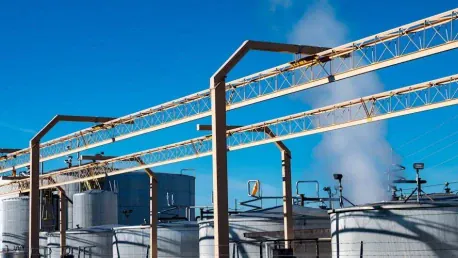The escalating dispute between Slovakia and Ukraine over gas transit routes has drawn significant attention, bringing into sharp focus how energy security can influence political alliances and regional stability. This conflict arose when Ukraine decided to block the transit of Russian gas through its pipelines to Slovakia, cutting off a crucial supply line for the latter’s energy needs. In a dramatic turn of events, Slovakia has been forced to reconsider its military aid to Ukraine, emphasizing the nation’s reliance on stable energy supplies over continuing political support. This decision has placed Slovakia in a challenging position, underscoring the complexity of balancing energy requirements with geopolitical strategies.
Analyzing how the struggle for energy resources can shape political relationships, Slovakia’s historic dependence on Russian gas via Ukraine introduces new risks following Ukraine’s unexpected decision. As a result, the Slovak government has initiated high-level talks with Russia aimed at resolving the issue, highlighting the nation’s dependence on uninterrupted gas flow for its households, businesses, and industries. The government is also grappling with the broader consequences of this energy dispute, which extends beyond immediate supply challenges to impact Slovakia’s stance on regional political alliances. Therefore, Slovakia’s current predicament poignantly illustrates the delicate balance required between ensuring energy security and maintaining international relations.
Energy Security Versus Political Alliances
This situation underscores the interconnectedness of energy resources and political dynamics in Europe, particularly as Slovakia’s pivot in priorities might have far-reaching implications. Hungary, another nation heavily reliant on Russian gas, is closely observing the situation and may choose to follow Slovakia’s lead by reevaluating its support for Ukraine. This potential shift could significantly influence the European Union’s perspective on sanctions against Russia, especially considering that both Slovakia and Hungary have previously criticized these measures for adversely affecting their own economies. The delicate dance of energy politics frequently forces such nations to navigate a complex interplay of security, economic, and diplomatic concerns.
The fallout from Ukraine’s blockage of gas transit extends beyond Slovakia’s borders, casting a shadow of uncertainty over neighboring countries that depend on this route for their energy supplies. Ukraine’s move is perceived as an attempt to renegotiate the terms of gas flows through its territory, a strategy that has understandably angered Slovakia. The consequences of this action have rippled across the region, causing concern among nations with similar dependencies. Slovakia’s response—threatening to withdraw military support—underscores its serious apprehensions about the reliability of its energy supplies and indicates the lengths to which it is willing to go to secure them. This reaction highlights the ever-present tension between securing immediate national interests and adhering to broader geopolitical commitments.
Broader Regional Implications
The broader implications of this gas transit dispute offer a stark reminder of the critical role that energy resources play in modern diplomacy and regional power dynamics. Slovakia’s actions could trigger a domino effect, prompting other nations to reevaluate their energy policies and political alliances in light of the region’s shifting landscape. For instance, should Slovakia choose to prioritize its energy needs over its military commitments to Ukraine, it may encourage other countries facing similar dilemmas to adopt a similar approach. Furthermore, the tension between Slovakia and Ukraine can potentially influence the European Union’s collective energy strategy, especially regarding its reliance on Russian gas and the measures it implements to secure alternative energy sources.
As Slovakia grapples with the immediate crisis, it must also consider the long-term implications of its decisions on its international relationships and regional stability. Energy security is paramount, yet the manner in which Slovakia addresses this challenge will undoubtedly affect its standing within larger geopolitical frameworks. The situation underscores the broader reality that national interests, particularly energy needs, can drive significant shifts in political alliances and profoundly impact regional stability. Consequently, as Slovakia navigated these complex dynamics, its decisions had a cascading effect across Europe, emphasizing the necessity for stable and reliable energy channels amidst the broader context of geopolitical unrest.
Conclusion: The Interplay of Energy and Diplomacy
The escalating tension between Slovakia and Ukraine over gas transit routes has drawn significant attention, highlighting how energy security can shape political alliances and regional stability. This dispute began when Ukraine blocked the transit of Russian gas through its pipelines to Slovakia, severing a crucial energy supply for the latter. Consequently, Slovakia has been compelled to reconsider its military aid to Ukraine, prioritizing stable energy supplies over ongoing political support. This decision places Slovakia in a difficult position, emphasizing the complexity of balancing energy needs with geopolitical strategies.
Slovakia’s historical dependence on Russian gas supplied through Ukraine now introduces new risks, following Ukraine’s unexpected move. To address this, the Slovak government has initiated high-level talks with Russia to resolve the issue, underscoring its reliance on uninterrupted gas flow for households, businesses, and industries. Beyond immediate supply challenges, this energy dispute impacts Slovakia’s regional political alliances. Thus, Slovakia’s situation vividly illustrates the delicate balance required between ensuring energy security and maintaining international relations.









